2023 Tour



You can play serious music and also be serious about science, business, politics, law – or any other subject. The status of Concordia’s music program, coupled with its ability to grant the Bachelor of Music degree, tells you that music is a college cornerstone. But it doesn’t tell the whole story about the importance of music at Concordia. While approximately 200 students major in conservatory-level voice and instrumental music, composition, and music education at Concordia, each week 700 private music lessons are given in the college’s dozens of music studios. From the pianist who goes on to study piano pedagogy in graduate school to the choir member who becomes a film actor to the violinist who plans to be a pediatrician, nearly one-third of all Concordia students participate in the music program. Concordia’s worldwide musical reputation translates into opportunities for students to perform in great concert halls around the nation and the world, regardless of their major.
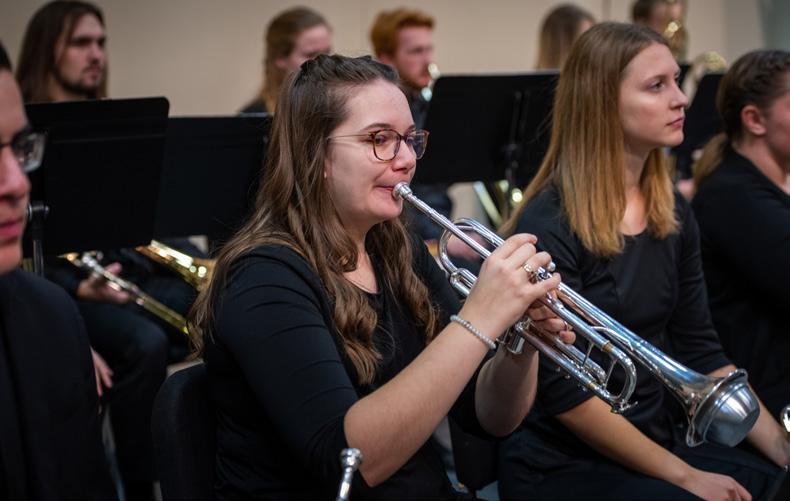
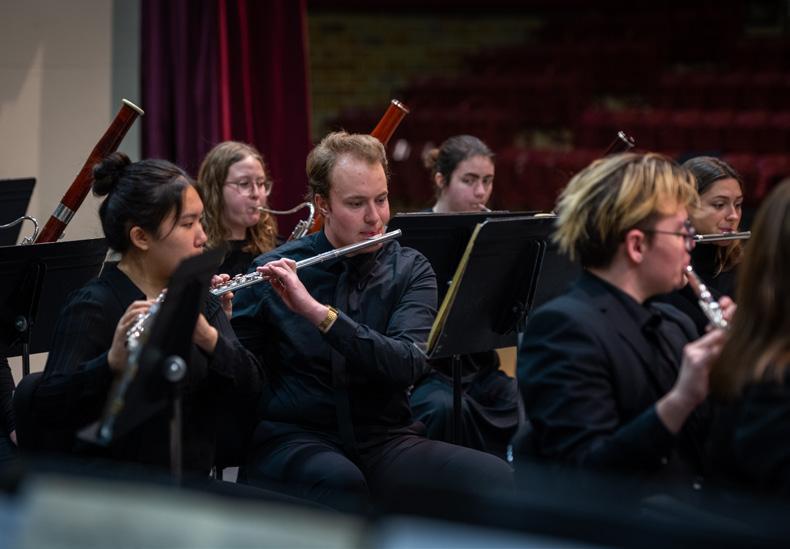
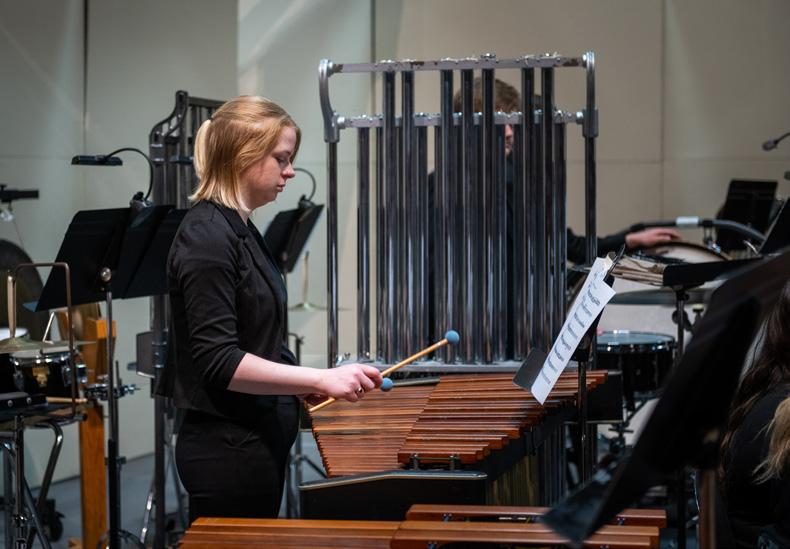


700
1/3
200
Approximately
Private music lessons offered weekly More than 30% of our students participate in ensembles and lessons 200 students major in music SERIOUSLY MUSIC. SERIOUSLY MORE.Sunday, Feb. 5 • 4 p.m. Roseville Lutheran Church
1215 Roselawn Ave. W. • Roseville, Minn.
Monday, Feb. 6 • 7 p.m
Hudson High School
1501 Vine S. • Hudson, Wis.
Tuesday, Feb. 7 • 7 p.m. Pablo Center at the Confluence
128 Graham Ave. • Eau Claire, Wis.
Wednesday, Feb. 8 • 7 p.m. Rochester Century High School
2525 Viola Rd. NE • Rochester, Minn.
Friday, Feb. 10 • 7 p.m. Stillwater High School 5701 Stillwater Blvd. • Oak Park Heights, Minn.
Sunday, Feb. 12 • 2 p.m.
Concordia College 901 8th St. S. • Moorhead, Minn.
to The Concordia Band
facebook.com/TheConcordiaBand
Instagram: @theconcordiaband
Subscribe to the band enewsletter at: ConcordiaCollege.edu/InstrumentalNewsletter




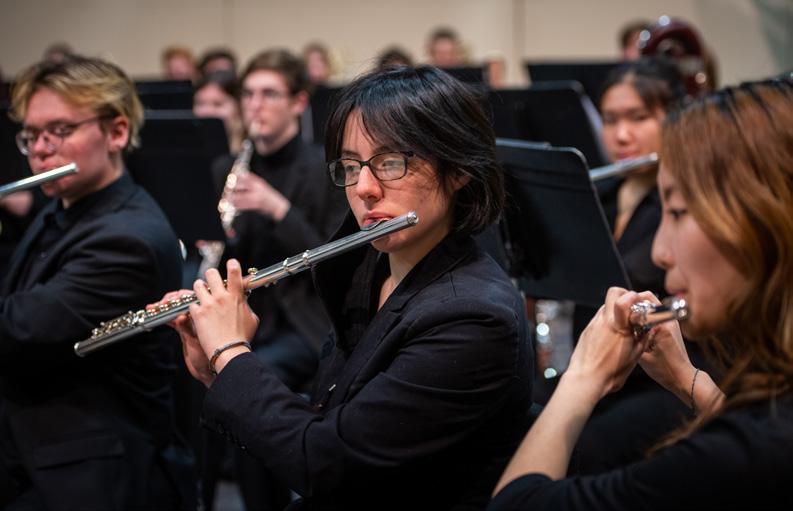
SUPPORT MUSIC
To donate go online to ConcordiaCollege.edu/Music and click “Give to Music.” Add “Give to the Band” in the comment section of the form.
Program to be selected from the following:
Magnolia Star (2012) Steven Danyew (b. 1983)
Omaira (2012) Carlos Pellicer (b. 1977) Adam Steinbach ’23, Trombone
The Seer (2019) Erik Santos (b. 1967) Ronnie Allen ’18, Baritone
I. Lonely Nocturne
II. Circles
III. Beale Street
IV. Final Sonnet to Orpheus
V. Not What Was
VI. Call to Creation
VII. Fire
VIII. Moan
IX. Island [1]
Intermission
Stillwater (2019) .....................................................Kelijah Dunton (b. 1999)
The Difficult Work for Peace
March! (2021) ....................................................... Jennifer Jolley (b. 1981) for those impacted by political oppression or war
Set Me As a Seal (1989/2022) .......................... René Clausen (b. 1953)/Trans. Cameron for those moving our world from injustice to peace Set me as a seal upon your heart, As a seal upon your arm: For love is strong as death; Many waters cannot quench love, Neither can the floods drown it.
– Song of Songs 8:6-7
American Guernica (1982) ........................................ Adolphus Hailstork (b. 1941) for those affected by racism
Lux Perpetua (2020) .................................................. Frank Ticheli (b. 1958) for a future world of light and peace for all
Lonely Nocturne (Langston Hughes, 1942)
When dawn lights the sky
And day and night meet, I climb my stairs high Above the grey street. I lift my window
To look at the sky
Where moon kisses star Goodbye.
When dawn lights the sky
I seek my lonely room. The halls as I go by Echo like a tomb. And I wonder why
As I take out my key, There is nobody there But me –
When dawn lights the sky.
Wake Up! (Clockwork)
Circles (Hughes, 1946)
The circles spin round
And the circles spin round And meet in their own tail.
Seasons come, seasons go, The years build their bars Till we’re in jail.
Like a squirrel in a cage ––For the jail is round ––We sometimes find Ourselves upside down.
Beale Street (Hughes, 1947)
The dream is vague
And all confused With dice and women And jazz and booze.
The dream is vague, Without a name, Yet warm and wavering And sharp as flame.
The loss Of the dream Leaves nothing The same.
Final Sonnet to Orpheus (Rainer Maria Rilke, 1923)
(translation by Erik Santos)
Silent Friend of many distances, feel, As your breath expands Space. In the beams of your dark belfry, Let yourself ring. That, which consumes you, Grows strong from your feeding. Go through Transformation, out and in. What has made you suffer? If drinking is bitter, become Wine.
Be, in this vast brimming Night, Magic Power at the crossroads of your senses, The Sense of their strange meeting. And when the Earthly forget you, To the still Earth say: I’m flowing. To the rushing Water say: I am.
Wake Up! (Chaos)
By then the poetry is written and the wild rose of the world blooms to last so short a time before its petals fall. The air is music and its melody a spiral until it widens beyond the tip of time and so is lost to poetry and the rose –belongs instead to vastness beyond form, to universe that nothing can contain, to unexplored space which sends no answers back to fill the vase unfilled or spread in lines upon another page –that anyhow was never written because the thought could not escape the place in which it bloomed before the rose had gone
Call to Creation (Hughes, 1931)
Listen!
All you beauty-makers, Give up beauty for a moment. Look at harshness, look at pain, Look at life again.
Listen!
Futile beauty-makers ––Work for a awhile with the pattern-breakers! Come for a march with the new-world-makers: Let beauty be!
Fire (Hughes, 1926)
Fire, Fire, Lord!
Fire gonna burn ma soul!
I ain’t been good, I ain’t been clean ––I been stinkin’, low-down, mean.
Fire,
Fire, Lord!
Fire gonna burn ma soul!
Tell me, brother, Do you believe If you wanta go to heaben Got to moan an’ grieve?
Fire, Fire, Lord! Fire gonna burn ma soul!
Moan (Hughes, 1926)
I’m deep in trouble, Nobody to understand, Lord, Lord!
Deep in trouble, Nobody to understand, Lord, Lord!
Gonna pray to ma Jesus, Ask him to gimme His hand. Ma Lord!
I’m moanin’, moanin’, Nobody cares just why. No Lord!
Moanin’, moanin’, Feels like I could die. O, Lord!
Sho, there must be peace, Ma Jesus, Somewhere in yo’ sky. Yes, Lord!
Island [1] (Hughes, 1950) Wave of sorrow, Do not drown me now: I see the island
Still ahead somehow. I see the island And its sands are fair: Wave of sorrow, Take me there.

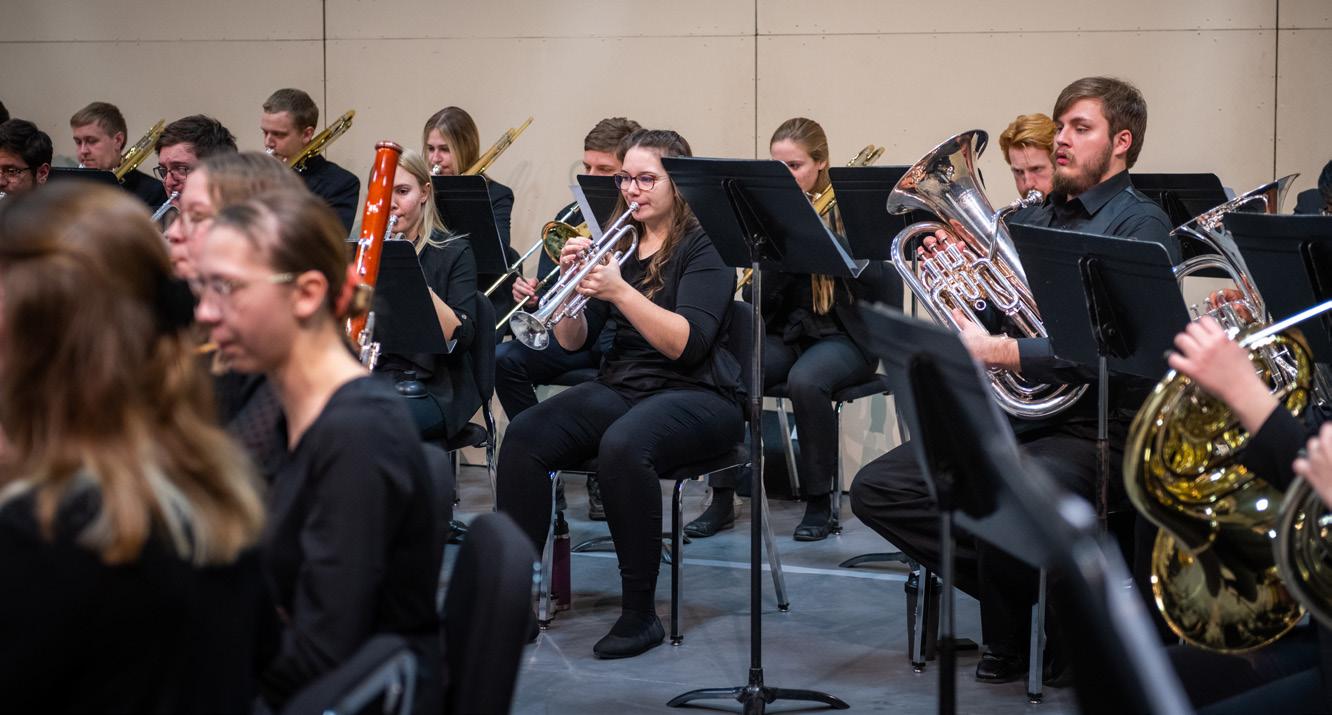
“Magnolia Star” was a train that ran from New Orleans to Chicago along with the famous “Panama Limited” in the mid20th century. This work evokes train travel with driving rhythms and train-like sonorities, and is also jazz and blues-inspired in harmonies, melodies, and timbres.
On Nov. 13, 1985, the city of Armero, Colombia, was literally swept away by an avalanche of mud and stones set off by the melting of glaciers caused by the soon-to-erupt volcano Nevado del Ruiz. This composition is dedicated to then 13-year-old, Omaira Sanchez. Omaira was found by journalists with mud up to her neck. She pleaded to be freed so she could help find the others in her family that were lost. Despite the efforts made by the rescue teams, the girl finally vanished in the mud, and she died in front of the entire world. Omaira became the innocent and dramatic symbol of the tragedy that took more than 23,000 victims.
– Carlos PellicerA “Seer” is one who, through supernatural insight, can see what the future holds, and see through to unseen truths. Who is the seer? What does the seer see?
“... I’m sitting here in the center of my house this quiet morning. Through the windows, in the outer corners of my eyes, I can see a full moon setting on my left and new sun rising on my right. Both gloriously happening now, however, I can only see one or the other if I turn my head – can’t see both simultaneously. I sit here trying to sum it all up, and see it all at once, but I can’t. There’s a lesson here somewhere in between. The difference between sleeping dreams and waking dreams is difficult to explain ...”
This musical mandala weaves together many disparate strands of creative inspiration. As much as possible, I let the subconscious lead, as my conscious mind struggled to render dream dictation into a linear language that might resonate with another. In this liminal state, in between both and neither, the answers lie.
– Erik Santos“March!” addresses the long-running political instability between North and South Korea while openly challenging and deconstructing the status quo of the march genre. The work quotes anthems of unsettling North Korean patriotic melodies, as well as a hymn of unity from pre-war Korea. It is often interrupted and broken apart by irreverent percussion, sputtering tempos and audio taken from the Korean demilitarized zone.
The selection of the Korean conflict should ultimately be understood as representative of our contemporary moment. One where dictatorships embrace war, ethno-nationalism, and brutality to thunderous cheers and fanfare.
The main melody is at once longing and noble in quality, and is constructed in a way that suggests the notion of infinity. Its accompanying harmony depicts a kind of bellows or the act of breathing, in and out perpetually. It never settles, but instead moves, modulates, and builds to a tremendous climax. The final coda is a brief meditation; the melody echoes itself tenderly, rocking back and forth, as the harmony begins its slow and fragile ascent to the heavens.
– Frank Ticheli“American Guernica” was written in remembrance of the Sept. 15, 1963, fire-bombing of the 16th Street Baptist Church in Birmingham, Ala., a racially motivated bombing that killed four young girls attending Sunday school (Carol Robertson, 14; Addie Mae Collins, 14; Cynthia Wesley, 14; and Denise McNair, 11), and injured 22 others. The work’s title refers to the famous mural by painter Pablo Picasso, which depicts the bombing of the Basque village Guernica by Nazi German and Fascist Italian warplanes on April 26, 1937, a tragic slaughter of mainly women and children.
– Adolphus Hailstork“Lux Perpetua” was composed for the Baylor University Wind Ensemble in memory of two young clarinetist members, Laura Onwudinanti and Jack Stewart, whose lives were tragically cut short in an automobile accident. The work’s title is drawn from the last line of the Latin text, Lux aeterna: “et lux perpetua luceat eis” (and let perpetual light shine upon them). The idea of light as both protector and illuminator was constantly in my mind as I composed the piece. Two kinds of light comprise the work: one soft and meditative, the other more sparkling and effervescent. Also in mind were the respective personality traits of the two dedicatees, Jack being more thoughtful and introspective, Laura being more spontaneous and gregarious.
This work was inspired by the beauty of Stillwater, Minn., on the banks of the St. Croix River. During the winter, the top of the river freezes and creates a tranquil effect that cannot be seen but heard. The river is a frozen mass, stuck in place and completely unmovable, but if you listen closely, you can hear that the water underneath continues to flow.
We as people forget sometimes that we are so much more deep and vast beneath our hard surfaces. We work, we go to school, we take care of our families, we deal with the struggles of the day-to-day routine militantly. But if we just take a moment to listen within ourselves, we discover our passions, our longings, and our sense of belongings.
– Kelijah DuntonPeter Lutkin was an American music educator, organist, conductor and composer. He was a chorister at the Episcopal Cathedral in Chicago and taught piano at Northwestern University in Evanston, Ill. His main achievement was the founding and development of the Northwestern University School of Music, where he was the first dean.
The Lord bless you and keep you, the Lord lift His countenance upon you and give you peace, the Lord make His face to shine upon you, and be gracious unto you. Amen.
The Concordia Band began in 1899 as a small collection of instrumental enthusiasts who wished to make music together. More than a century later, it has grown into a sophisticated organization with an international reputation for artistic excellence.
Befitting its pioneering status, the band was the first campus organization to tour, both locally and abroad. Its first international tour occurred in 1935, when the band traveled to Norway for a series of well-received concerts that laid the groundwork for its long-standing reputation of both travel and musical excellence. The ensemble has continued to tour and perform nationally and internationally at many
prestigious music conferences and festivals. Most recently, The Concordia Band traveled to Spain and participated in both the Granada and Pablo Casals International Music Festivals.
Concordia band members have gone on to significant professional careers, as well as faculty positions at public schools, colleges and universities nationwide. Regardless of career choice, the experience of performing outstanding repertoire for audiences both home and abroad is among the most cherished memories for alumni of The Concordia Band.

Peter Haberman serves as the director of bands and professor of music at Concordia College where he is the conductor of The Concordia Band. He also leads the Echo Band, works with student conductors, teaches music education courses and coordinates the comprehensive band program. Prior to his appointment at Concordia, Haberman held similar positions as director of bands at the University of Wisconsin-Eau Claire and Bucknell University.
Haberman maintains an active schedule as a conductor, guest conductor and clinician, having worked in more than 10 states and on five continents. His ensembles have performed at both national and international conferences and music festivals. He has also served as music director for many community ensembles including the Chippewa Valley Youth Symphony, the Bellevue Community Band, and the Route 55 Jazz Ensemble.
Prior to his college career, Haberman spent several years teaching at the Mercer Island School District in Washington and the Maple Lake School District in Minnesota. He was honored to be the recipient of the Educator of the Year Award and the Principal’s Award for Outstanding Teaching at Mercer Island, and the Maple Lake Employee of the Year Award.
Haberman is a member of the College Band Directors National Association, Minnesota Band Directors Association, Minnesota Music Educators Association, National Association for Music Education, and World Association for Symphonic Bands and Ensembles. His honorary memberships include Phi Beta Mu, Phi Mu Alpha, and Pi Kappa Lambda.
A native of Minnesota, he has earned degrees from Concordia College, the University of Montana, and the University of Minnesota where he completed a Doctor of Music Arts in conducting with Craig Kirchhoff. Haberman lives in Moorhead, Minn., with his wife, Erika Tomten, and their daughter Claire.

Trombone / Buffalo, Minn.
Major: Instrumental Performance
Activities: The Concordia Band, The Concordia Orchestra, Trombone Choir, Fargo-Moorhead Symphony Orchestra
Soloist Adam Steinbach will perform “Omaira” by the Spanish composer Carlos Pellicer. “This is a sobering but ultimately uplifting piece,” says Adam. “It’s based on a tragedy in Colombia where a landslide caused by a volcanic eruption buried an entire town. It’s a haunting piece that reflects this tragedy.”
Adam is working toward a Bachelor of Music degree in trombone performance and he aspires to be a professional orchestra musician. He began his studies with noted trombone educator Ben Bussey at the prestigious MacPhail School of Music in Minneapolis and is now studying with low brass instructor Dr. Nat Dickey at Concordia. Many of Dr. Dickey’s students have gone on to top graduate programs and careers as professional musicians. “I’m grateful to be working with this great teacher who is so giving with his time and talent,” says Adam.

Adam currently plays second trombone with the Fargo-Moorhead Symphony Orchestra. “This experience is important to me because I want a career performing music. Now I’m getting a look at what may happen, this great opportunity to be playing and learning alongside my faculty mentor, Dr. Dickey,” he says. Adam will soon apply to a top graduate program to continue his studies. “I’m looking for a very competitive program, and I feel I’m in the upper reaches of some programs I’ve seen. Hopefully I can blend school with a job playing in an orchestra,” he says.
In high school, Adam was a member of the Minnesota All-State Band, and he performed in his hometown Buffalo Community Orchestra and Buffalo Community Theater. He is a recipient of the highly competitive Christiansen Music Scholarship at Concordia, of which only five are awarded each year, which has significantly reduced the cost of tuition. “Music has made college a reality for me, and I’m so grateful for all the opportunities it has given me,” he says.
This velvety baritone voice performed the televised Prince Tribute at the famous Target Center for the Minnesota Timberwolves Halftime Show. He has also performed for the Minnesota Twins on multiple occasions. Former member of the three-times Grammy Award-winning Sounds of Blackness, Allen has also sung background vocals for former Prince vocalist Shelby J. He has performed as an Ordway guest artist and is currently preparing for the remount of the Ten Thousand Things Theater Company production of “Thunder Knocking on the Door.”

Flute / Seoul, South Korea and St. Cloud, Minn. Major: Instrumental Music Education

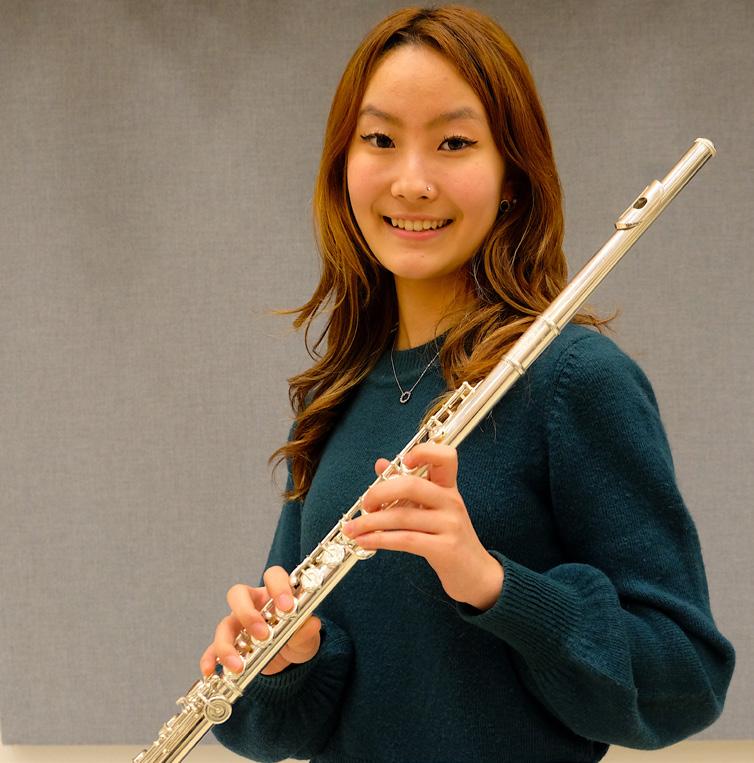
Activities: The Concordia Band, The Concordia Orchestra, Student Government, Coffee Shop student manager
Elle’s father is music director for a Korean broadcasting company, and her mother works at an international school in Seoul. They want their only child to experience the world and understand other cultures, while also gaining a first-rate education. So as a junior high school student, Elle moved in with her Minnesota host family to begin the biggest adventure of her life. She’s now looking forward to graduate school to study conducting.
“I started band in the U.S., and liked it immediately,” she says. After getting the chance to direct her high school band, she knew she had found her calling. “I like being on the podium, directing the musicians,” says Elle. “I like being a leader, and I’m learning how to project myself before the group.”
Elle loves the variety of music performed by Concordia’s two major ensembles. “We really focus on learning what the composer’s intent was with each piece, so when we perform we’re in communication with the composer.”
Trombone / Woodbury, Minn.
Majors: Biology, Spanish, Environmental Sustainability; Art Design minor Activities: The Concordia Band
Carter began playing trombone in grade school, and he chose Concordia because of the band and academic programs. “I’ve been switching around various academic fields each year here, but band remains my one constant,” he says. “Band is always here for me. It’s my home.”

Carter plans to pursue conservation biology, possibly with an emphasis on prairie restoration. He’s spent summers working for a company that helps farmers reestablish native habitat. “It’s work that is personally fulfilling to me,” he says. “I can see myself making it my career.”
Trombone / Mandan, N.D.
Majors: Music Performance, Mathematics
Activities: Varsity Volleyball, The Concordia Band, The Concordia Orchestra, Jazz Band, Trombone Choir
LaReena’s proudest accomplishment was winning the Young Artist Competition and performing her solo with her hometown Bismarck-Mandan Symphony Orchestra. “What a sound we made! It was a big moment for me,” she says.
LaReena has had other big moments – like playing first trombone in the All State Band, orchestra and jazz band, or playing in the state volleyball tournament two years in a row, or being named to the National Honor Society. “I’m grateful my parents gave me the opportunity to be in all these activities, they’re helping me become a well-rounded person,” says LaReena.
She juggles varsity volleyball with band. “We practice at the same time, and everyone is so understanding about combining the two for me,” says LaReena. “I’m switching back and forth on successive days, but it’s worth it. Being on both ‘teams’ is important to me.”
Trombone / Billings, Mont.
Major: Business Management, Music minor
Activities: The Concordia Band, The Concordia Orchestra, Jazz Band, Vocal Jazz Ensemble
Chase’s family operates campgrounds in West Yellowstone, Mont., and he spends summers helping run the family business. “I can see myself in the tourism industry possibly as a hospitality consultant, or operating a tour company in West Yellowstone,” he says. “I love living outdoors.”
Chase chose Concordia because of the blend of music and majors he was looking for and couldn’t find anywhere else. In business management he’s learning about utilizing people’s strengths and how to apply them to everyday interaction for growing a business. “Band helps me to branch out and interact with different people,” he says. “I like that.”
Bassoon / Owatonna, Minn.

Major: Chemistry, Spanish minor Activities: The Concordia Band, Resident Hall Assistant, Volunteer at Sanford Orthopedics, part-time pharmacy work
Lauren is well on her way to achieving a career in pharmacy, having completed a pharmacy training certification in high school, and more recently, an immunization certificate. She applies her knowledge when working at a Fargo pharmacy. “This all helps me become a contributing team member,” she says. “It’s what I enjoy doing.”
Lauren discovered the band at a concert at her high school and hosted two students who invited her to check out Concordia. “I liked it immediately; there is everything here I was looking for, especially the science and music programs,” she says. “I loved our tour of Spain last year, and I still keep in touch with our Spanish conductor. It was a great experience.”
Trumpet / Savage, Minn.
Major: Trumpet Performance


Activities: The Concordia Band, The Concordia Orchestra, Jazz Band, Trumpet Ensemble, Brass Quintet
While Jake acknowledges that he’s probably too heavily involved in music, he says the college’s core curriculum gives him perspectives into the world and helps him explore new ideas. “I’ve become open to other cultures and how they fit together in the world,” he says. “I’ve gained new insights.”
The high expectations for people in band is especially appealing to Jake. He says it’s so helpful that Dr. Haberman explains the context behind each piece, and why it was composed in such a way. “Then we all show up for rehearsal prepared, and our final product produces a great sound,” he says. “Like Dr. Haberman always says, ‘You gotta feel it to make it good.’”
Dr. Peter Haberman, conductor of The Concordia Band – the college’s oldest music ensemble, loves creating and shaping a new band each year. It’s an intensely human endeavor involving young musicians with high levels of artistry.
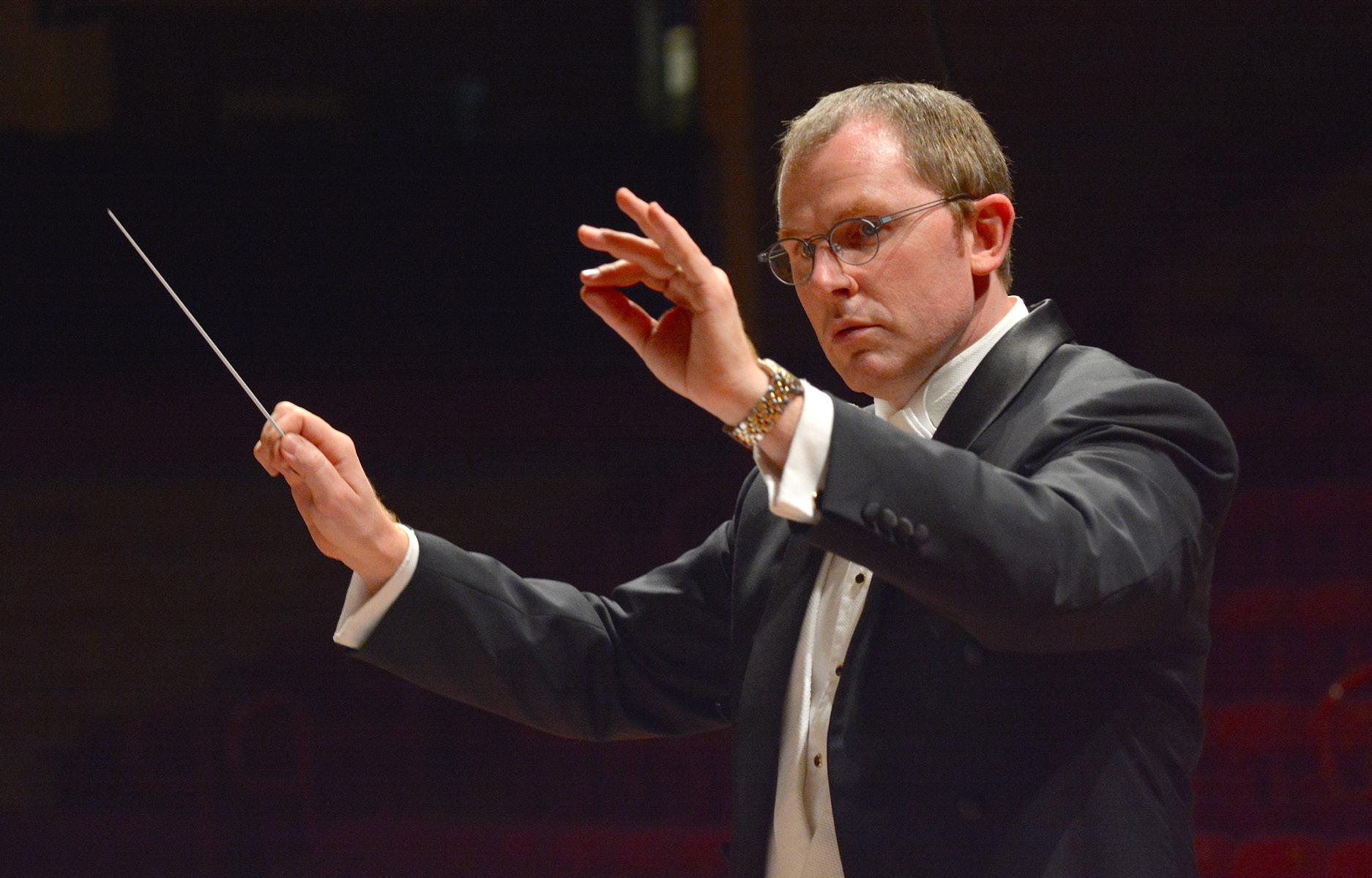
Haberman knows the process well. A 1997 graduate, his own experiences at Concordia have become his model for leading the band.
Each year the leadership of Haberman and the returning band members deliberately establish an atmosphere that produces a community of musicians who aspire to make and enjoy exceptional music.
“Returning musicians have already shown the commitment it takes to working hard in the practice room, in lessons and rehearsal
in order to produce a highly artistic result,” says Haberman. “They help pass along this culture of expectation to the new members of the band. There’s an awakening in the new musicians when they are surrounded by this attitude of achieving high-quality, artistic expression.”
New students join the band through auditions, so they know immediately that they share a similar level of ability as their bandmates. “They know they’ve earned a place,” says Haberman.
Another key element in the community building process is retreats at the start of each semester. Here is where friendships are formed through picnics, social time and beginning to collectively learn a new repertoire.
“This all helps us become a band family,” Haberman says. “We learn to trust each other. This works when students agree that putting their time and energy into being a committed community ultimately results in better music.”
In his teaching, Haberman seeks an emotional and musical engagement with students so they will be empowered to do good work on their own.
“It’s about the process of growing deeper and being passionate about what we do as musicians,” he says. “In rehearsals, more questions are asked than commands given. Music is a listening art and we explore learning to listen at a much deeper level with the ultimate goal of never accepting less than our best.”
FLUTE / PICCOLO
+ Rachel Bringle, Madison, Minn. | Music Education
Oliver Carriere, Rogers, Minn. | Education
+ Ellie Chang, Seoul, Korea | Music Education
Brogan Ludwig, Hawley, Minn. | English and Business
Madeline Schulte, White Bear Lake, Minn. | Music Performance
Macy Speer, Baxter, Minn. | Global Studies
Seema Tian, Fargo, N.D. | Chemistry, Music minor
OBOE / ENGLISH HORN
+ Noah Kirk, Minot, N.D. | Music Education
BASSOON / CONTRABASSOON
#+ Viva Graff, Winona, Minn. | Music
Tyler Horne, Fargo, N.D. | English Writing and Music
Sophia Klee, Bismarck, N.D. | General Music
Anna Kronbeck, Hawley, Minn. | Political Science and Global Studies, Spanish minor
Lauren Phelps, Owatonna, Minn. | Chemistry, Spanish, and Biology
CLARINET
#+Kaylin Bosworth, Fergus Falls, Minn. | Music Education, English Writing minor
Caroline Cady, Bismarck, N.D. | Music Education
Mackenzie Fitzner, Clinton, Minn. | Education
Esmeralda Garcia, Wilmar, Minn. | Elementary Education
# Aidan Kaddatz, Little Falls, Minn. | Music Performance
# Andie Kassenborg, Moorhead, Minn. | Biology and Spanish, Chemistry, Religion, Psychology
Bella Munro, Fargo, N.D. | Music Education
+ Elissa Wennblom, Big Lake, Minn. | Music Performance
BASS CLARINET
Daniel Bjork, Dassel, Minn. | Music Education
§+ Abby Nelson, Pierz, Minn. | Music Education
CONTRA ALTO/BASS CLARINET
Jaden Hoff, Bismarck, N.D. | Education
ALTO SAXOPHONE
*+ Mariah Olesch, Pierz, Minn. | Elementary Education
Andrea Richard, Kasson, Minn. | Music Education
TENOR SAXOPHONE
# Mitchell Rabehl, Saint Michael, Minn. | Computer Science, Psychology minor
BARITONE SAXOPHONE
Jaxon Dewald, Moorhead, Minn. | Music Performance
TRUMPET
+ Carter Egesdal, Brooklyn Park, Minn. | Music Performance
Kelly Klontz, Isanti, Minn. | Music Education
Jacob Meixner, Savage, Minn. | Music Performance
Bailey Nelson, Brooten, Minn. | Music Education
Conrad Nickelson, Cambridge, Minn. | Music Education
*+ Maddie Schuette, Bemidji, Minn. | Music Education
Jessica Shaw, Andover, Minn. | Music Education
HORN
Zeb Biles, Duluth, Minn. | Music Education
+ Ethan Brummer, Buffalo, Minn. | Music Education
Zachary Chromey, Moorhead, Minn. | Music Education
Sasha Klein, Balta, N.D. | Communication Studies and Global Studies
Hannah Olson, Willmar, Minn. | ACS Chemistry, Biology and Spanish
Abbey Rudd, Fargo, N.D. | Political Science
§+ Emma Schock, Sioux Falls, S.D | Music Education and Teaching ESL
Ellie Wilker, New Ulm, Minn. | Music Education
TROMBONE
Mitchell Lejcher, Woodbury, Minn. | Biology and Environmental Science
+ Chase Linde, Billings, Mont. | Business Management and Music minor
Kenny Lindstrom, St. Paul, Minn. | Music Education
LaReena Mosbrucker, Mandan, N.D. | Music Performance
Carter Slette, Woodbury, Minn. | Biology, Spanish, Environmental Studies
BASS TROMBONE
+ Riley Fiske, Rogers, Minn. | Mathematics, Computer/Data Science, German
Steve Keller, St. Cloud, Minn. | Music Education
EUPHONIUM
Collin Smolke, Shakopee, Minn. | Mathematics
+ Adam Steinbach, Buffalo, Minn. | Music Performance
Colton Thomasson, Fargo, N.D. | Mathematics and Physics
TUBA
Cayden Ganser, Fargo, N.D. | Music Performance
Michael Harvala, Waconia, Minn. | Multimedia Journalism
+ Joshua Weber, Spring Lake Park, Minn. | Biology Education
STRING BASS
Brigham Drevlow, Thief River Falls, Minn. | Music Education
PIANO
Jared Campbell, Paynesville, Minn. | Biology and Music
HARP
Jack Bulman, Grand Forks, N.D. | Music
PERCUSSION
Erik Ault, West Fargo, ND | Music Education
+ Tristan Byer, Fargo, N.D. | Music Education
Sam Deneen, Ramsey, Minn. | Music Education
Andrew Kocher, Savage, Minn. | Music and Business
%+ Katie Langenfeld, Princeton, Minn. | Music Education
Aaron Oakes | Detroit Lakes, Minn. | ACS Chemistry and Mathematics
Nat Dickey
Department Chair, Trombone, Euphonium, Tuba
David P. Eyler
Percussion, Percussion Ensemble, Marimba Choir, Percussion Methods
Peter Haberman
Instrumental Music Education, The Concordia Band, Cobber Echo Band
Erika Izaguirre
Music Teaching Fellow; Instructor, Trumpet
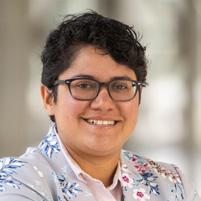
Race Hoglund | Saxophone
Callie Stadem | Harp
Daniel Breedon | Music Theory, Composition, Global Music, Counterpoint
Sonja Bosca-Harasim | Violin, Viola
Ísis Jarnicki de Carvalho | Voice
Debora Harris
Flute
Douglas Neill
Tuba, Bass Guitar Russell Peterson Bassoon, Saxophone, Jazz Ensemble I
Shauna Pickens
Coordinator of Music Education, Brass Techniques


Kevin Sütterlin
Instrumental Conducting, The Concordia Orchestra, Opera Concordia
Karin Wakefield


Horn, Piano Leigh Wakefield
Clarinet, Woodwind Methods
Steven Makela | Music Theory and Composition
Eric Martens | Classical Guitar, Jazz Guitar, Guitar Ensemble
Jeffrey Meyer | Music History, Music Theory, Global Music

Anne Jennifer Nash | Voice
Dina Neglia Khachatryan | Violin, Viola, Symphonia
Maisi Pedersen | Voice
Ainsley Rentfrow | Music Education

Annett Richter | Music History, Aural Skills
Michael Culloton Choral Conducting, The Concordia Choir, Vocal Music Education, Church Music
David Hamilton | Voice, Diction, Repertoire, Music May Seminars, Opera Workshop, Italian
Gregory Hamilton | Cello, Double Bass
Douglas Harbin | Music Theory, Composition
Jay Hershberger | Piano
Rachel Horan | Piano, Aural Skills
Holly Janz | Voice, Diction
Grigor Khachatryan | Piano
Kira Haler Knutson | Chapel Choir, Kantorei, and Cantabile
Anthony Leathem | Voice
Shirley Leiphon | Voice
Andrew Steinberg | Organ
Verlene “ Beanie” Stotts | Symphonic Band
Stephen Sulich | Accompanying, Coaching, Opera Workshop

Jessica Westgard Larson | Handbell Choirs
Kristen Hatfield | Music Enrollment Coordinator

Karly Nelson | Administrative Assistant for the Music Department
Wyatt Steinke | Associate Administrator and Manager for Choral Ensembles

Matt Winarski | Associate Administrator and Manager for Instrumental Ensembles




925389/1800/0123
 Kelley Tracz Oboe
Kelley Tracz Oboe
